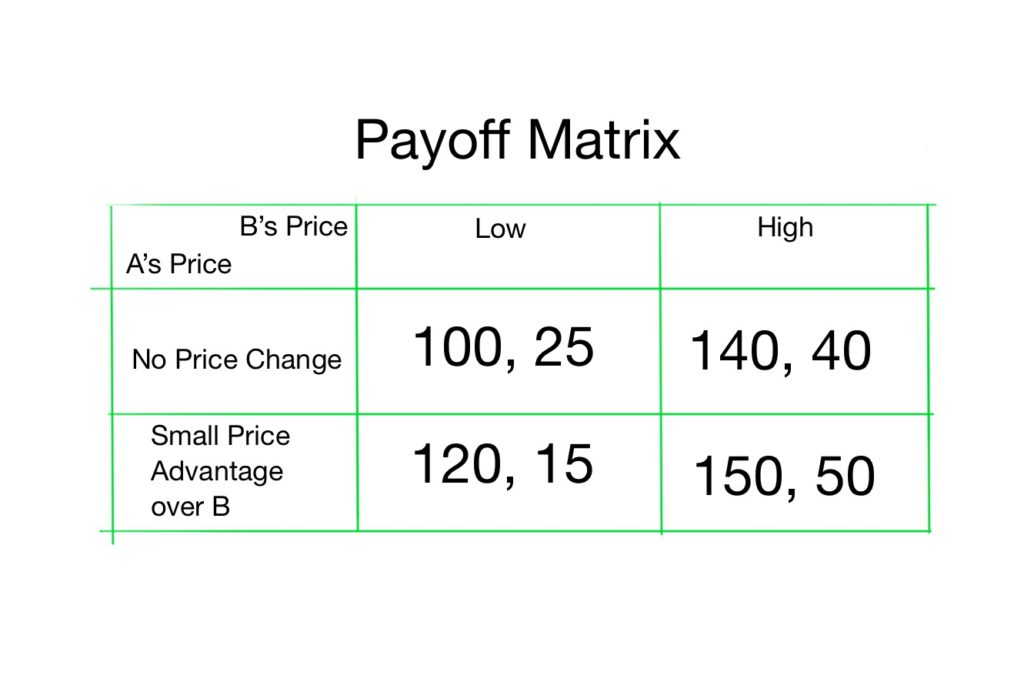Game Theory: Simple Games

Know your Enemy, Know yourself …
Game Theory is a critical and influential framework in strategic management and decision-making that finds extensive application in management consulting. It offers a structured approach to understanding competitive and cooperative interactions among rational decision-makers. In essence, Game Theory provides a mathematical and conceptual basis for analyzing situations where individuals or organizations make decisions that are interdependent, where the outcome for each participant depends on the choices of others.
Key Concepts of Game Theory:
- Nash Equilibrium: A situation in a non-cooperative game where no player can benefit by changing their strategy while the other players keep theirs unchanged. It represents a state of mutual best responses.
- Dominant Strategy: A strategy that is the best for a player, regardless of the strategies chosen by other players.
- Zero-Sum Games: Situations where one participant’s gain is exactly balanced by the losses of the other participant(s). In contrast, non-zero-sum games allow for mutual benefit.
- Cooperative vs. Non-Cooperative Games: Cooperative games are those in which participants can negotiate and enforce agreements, while non-cooperative games do not allow for agreements between the players.
- Sequential Games: Games where players make decisions one after another, allowing for a consideration of the strategic responses of others.
- Simultaneous Games: Games where players make decisions at the same time, without knowledge of the other players’ choices.
Applications in Management Consulting:
- Strategic Decision Making: Assisting organizations in anticipating competitors’ moves and reactions in a competitive market.
- Negotiation and Contract Design: Structuring negotiations and contracts to ensure favorable outcomes by understanding the incentives and strategies of all parties involved.
- Market Analysis: Analyzing market dynamics, including entry, competition, and pricing strategies.
- Operational Strategy: Applying game theory to operational decisions, such as supply chain interactions, to optimize overall performance.
Similar Tools and Methodologies:
- SWOT Analysis: While Game Theory provides a framework for decision-making in an interactive context, SWOT Analysis helps in understanding internal strengths and weaknesses, and external opportunities and threats.
- Porter’s Five Forces: Offers a broader view of the competitive environment by analyzing five key forces that shape every industry and market. This tool complements Game Theory by providing a detailed analysis of industry structure.
- Scenario Planning: Unlike the predictive nature of Game Theory, Scenario Planning involves creating and analyzing multiple future scenarios to inform long-term strategic planning. It helps organizations prepare for various potential futures.
- Decision Trees: A tool for mapping out various decision paths and evaluating potential outcomes and their probabilities. Decision Trees can incorporate elements of Game Theory by including decision nodes that consider competitors’ responses.
Game Theory’s applicability spans various domains within management consulting, from strategy and operations to negotiations and market analysis. Its emphasis on rational decision-making and strategic interdependence makes it an invaluable tool for consultants aiming to deliver sophisticated, data-driven recommendations to their clients.



